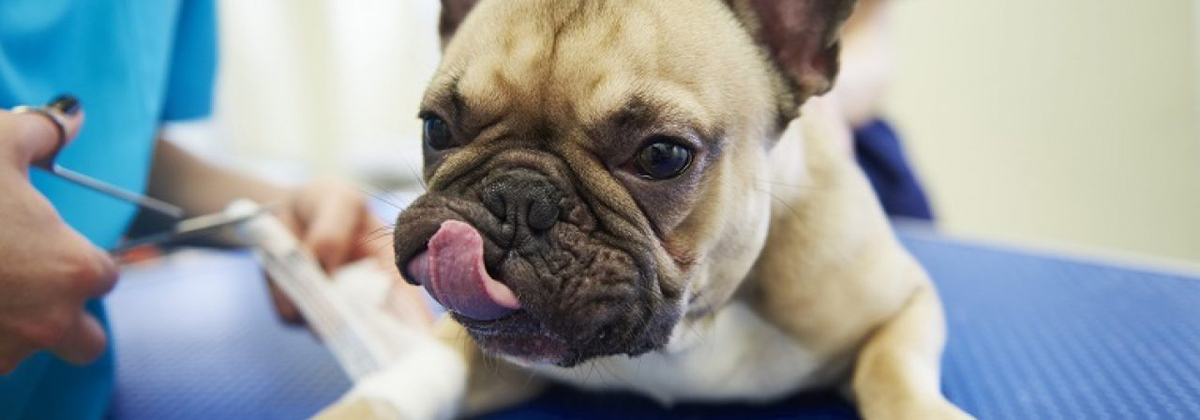31 May Dog’s Lockjaw: Causes, Symptoms, & Treatment
The lockjaw is a disease that causes a lot of suffering, torment and discomfort in dogs. Depending on the cause of the disease, there may also be swelling and pain. In some cases, dogs lose muscle and can’t eat properly; Thus, more complications are created. Many dogs don’t show symptoms until they have visible pain, bone changes, or jaw paralysis. Treatment and prevention of this disease depend on age, the seriousness of the condition, and the dog’s health status. This problem isn’t related to age, sex or breed. However, adult dogs are more likely to be affected by a lockjaw. A dog with this problem can’t open or close his mouth. Disease, arthritis, tetanus and neurological disorders are just a few reasons for a dog’s lockjaw.
Symptoms of dog’s Lockjaw
There’re many symptoms of a dog’s Lockjaw that are secondary. Consult your veterinarian immediately if your dog has any of the following symptoms or seems to have jaw problems.
- Abnormal face expression
- Facial paralysis
- Inflation
- the pain
- Dehydration
- Saliva secretion
- Inability or difficulty in opening the jaw
- Inability to close the jaw
- Duct muscle atrophy (may present as a weakness when chewing or biting)
- Fever
- Loss of appetite
- Weight Loss
- Jaw bone displacement (visible only at veterinarian examination)
Reasons for dog’s Lockjaw
Lockjaw, in some cases, may cause the dog to become incapacitated. This inability to open or close the jaw can get worse over time. There may be different types of the disease, but its recurrence is widespread.
- Temporomandibular joint ankylosis – Immobility and joint stiffness caused this painful condition, leading to a complete inability to open the mouth.
- Temporomandibular joint accumulation and dysplasia – abnormal separation in the joint
- Trigeminal nerve palsy – leads to the inability to close the mouth, making it difficult to eat and drink.
- Physical Muscular Myositis – Swollen muscles cause difficulty in opening the jaw. It’s an immune-mediated disorder.
- Neoplasia
- Arthritis
- Tetanus
- Systemic disorders such as hypoadrenocorticism
- Severe ear disease
- Horner Syndrome – It’s a neurological disorder
- Retrobulbar abscess – It’s a dog’s eye disease
- Trauma to the mandibular bones
- Central nerve lesions
Diagnose
The first step in diagnosing the disease is a physical examination of the jaw, which can cause your dog pain. Of course, this physical examination isn’t by force or pressure, but it’s necessary to determine the extent and type of lockjaw. Your dog may also have pain in the mucous membranes of his mouth, teeth, ears or tongue that you may not be aware of.
Blood tests can show increased muscle enzymes and autoantibodies that can alter muscle fibres or signs of tetanus. Underlying diseases or malignancies can also be identified after a blood test. Radiography, CT scan, and MRI of the skull and jaw are other good diagnostic options. Electromyography is another test that is useful for seeing the normal function of the jaw and facial muscles. Sampling can show the extent of muscle fibrosis and atrophy.
Treatment
The treatment of the disease depends on the cause. For example, surgical interventions, such as bone resection, are a common treatment for temporomandibular ankylosis. Tetanus is treated with antibiotics and antibiotics. Physical muscle myositis is treated with immunosuppressive doses of corticosteroids.
Treating an underlying condition, such as severe earache, can speed up a dog’s mouth lock recovery. The drug also helps to cure a systemic disease, such as hypoadrenocorticism; Because a systemic disease requires medication and constant monitoring. Treatment of mandibular muscle myositis involves the gradual opening of the mouth. In the case of trigeminal neuralgia, the opposite is true, intending to close the mouth properly. In any case, feeding and drinking will be your dog’s two basic needs when recovering or controlling the disorder. As a result, you need to change the way you feed your dog.
Dogs, like humans, especially children, are exposed to many diseases and problems. You should always carefully monitor your dog’s behaviour, diet, and reactions so that you can prevent a dangerous problem or illness on time. An important and essential principle in preventing most diseases is regular hygiene and grooming. Your dog’s vitality, health and cleanliness is our great goal. Mishka’s specialized team has taken care of your dear dogs so that you can play with them in peace and enjoy their accompany.




No Comments